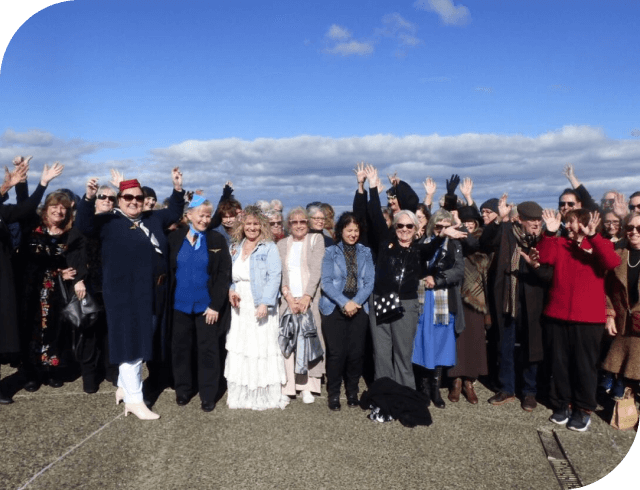
Wellness And Therapy Guides
Mindfulness Meditation
What is Mindfulness Meditation?
Many people think “My mind is just too busy – I’m going to find it too hard to quieten my thoughts with mindfulness”.
At its core, mindfulness is simply consciously focusing on the present moment.
Rather than worrying about the uncertainties of the future or dwelling on the past, mindfulness invites you to embrace the sensations and experiences unfolding in the here and now, offering a source of calmness and supporting you to feel grounded.
You’ll learn how to fully immerse yourself in simple activities like savouring a soothing cup of tea, engaging in gentle movement exercises tailored to your energy levels, or relishing moments of connection with loved ones.

Many people think “My mind is just too busy – I’m going to find it too hard to quieten my thoughts with mindfulness”.
At its core, mindfulness is simply consciously focusing on the present moment.
Rather than worrying about the uncertainties of the future or dwelling on the past, mindfulness invites you to embrace the sensations and experiences unfolding in the here and now, offering a source of calmness and supporting you to feel grounded.
You’ll learn how to fully immerse yourself in simple activities like savouring a soothing cup of tea, engaging in gentle movement exercises tailored to your energy levels, or relishing moments of connection with loved ones.
Benefits for People Living With Cancer

For people living with cancer, mindfulness offers a multifaceted approach to coping with physical, mental and emotional challenges.
Research indicates that mindfulness practices can significantly alleviate symptoms of anxiety, providing a sense of calm and stability amidst uncertainty. Mindfulness has also been shown to effectively reduce stress levels, offering respite from cancer treatment and its associated worries.
Neuroscience evidence suggests mindfulness may lead to improvements in focused attention, as well as the ability to regulate emotions. Beyond its immediate benefits for mood and stress management, mindfulness can be used as a treatment for depression and may also help prevent relapses into depression.
Benefits for People Living With Cancer
For people living with cancer, mindfulness offers a multifaceted approach to coping with physical, mental and emotional challenges.
Research indicates that mindfulness practices can significantly alleviate symptoms of anxiety, providing a sense of calm and stability amidst uncertainty. Mindfulness has also been shown to effectively reduce stress levels, offering respite from cancer treatment and its associated worries.
Neuroscience evidence suggests mindfulness may lead to improvements in focused attention, as well as the ability to regulate emotions. Beyond its immediate benefits for mood and stress management, mindfulness can be used as a treatment for depression and may also help prevent relapses into depression.
Mindfulness offers a gentle and adaptable approach to navigating the complexities of your cancer journey.
Mindfulness offers a gentle and adaptable approach to navigating the complexities of your cancer journey.
Benefits for Carers
For carers supporting a loved one with cancer, mindfulness may become a powerful tool.
Mindfulness can reduce stress and anxiety and increase present-moment awareness allowing carers to approach their duties with greater clarity and compassion. By cultivating a non-judgmental attitude towards their thoughts and emotions, carers can navigate the complexities of caregiving with greater ease and acceptance.
Mindfulness also promotes self-care, ensuring carers prioritise their own wellbeing alongside caregiving. Integrating mindfulness into daily routines nurtures emotional health, ensuring carers have the strength and capacity to provide optimal care.

For carers supporting a loved one with cancer, mindfulness may become a powerful tool.
Mindfulness can reduce stress and anxiety and increase present-moment awareness allowing carers to approach their duties with greater clarity and compassion. By cultivating a non-judgmental attitude towards their thoughts and emotions, carers can navigate the complexities of caregiving with greater ease and acceptance.
Mindfulness also promotes self-care, ensuring carers prioritise their own wellbeing alongside caregiving. Integrating mindfulness into daily routines nurtures emotional health, ensuring carers have the strength and capacity to provide optimal care.
What to Expect from Your Session

Held across 8 sessions, you’ll develop a practical toolkit of Mindfulness Meditation techniques to take away with you.
- Mindfulness Fundamentals: Learn to pay attention, purposefully, in the present moment, without judgement. Explore mindful awareness of the body.
- Perception and Creative Responding: Discover that it’s not the stressors themselves but how you handle them that matters most.
- Finding Pleasure and Power in the Present: Dive into attitudinal foundations and understand how to respond mindfully to pleasant and unpleasant experiences.
- Understanding Stress: Delve into the neurophysiology of stress and learn how mindfulness can mitigate its negative effects.
- Mindfulness of Thoughts and Emotions: Identify conditioned reactions and learn to respond mindfully, breaking free from stuckness.
- Mindfulness in Everyday Life: Explore interpersonal mindfulness and techniques for staying present under stress.
- Making Conscious Choices: Learn to try new perspectives and make intentional decisions in daily life.
- Review and Beyond: Reflect on your practice, maintain consistency, and explore further possibilities.
During meditation sessions, you’ll relax progressively and find comfort while focusing on your breath or body sensations. Your teacher will gently guide you back to the present if distractions arise.
Beyond sitting practice, you’ll learn how mindfulness can be integrated into daily life. Enjoy mindful walks in nature, savour each bite with mindful eating, or immerse yourself in the sensation of warmth during mindful showering.
This holistic approach ensures mindfulness becomes a versatile tool for finding peace and presence in every moment.
What to Expect from Your Session
Held across 8 sessions, you’ll develop a practical toolkit of Mindfulness Meditation techniques to take away with you.
- Mindfulness Fundamentals: Learn to pay attention, purposefully, in the present moment, without judgement. Explore mindful awareness of the body.
- Perception and Creative Responding: Discover that it’s not the stressors themselves but how you handle them that matters most.
- Finding Pleasure and Power in the Present: Dive into attitudinal foundations and understand how to respond mindfully to pleasant and unpleasant experiences.
- Understanding Stress: Delve into the neurophysiology of stress and learn how mindfulness can mitigate its negative effects.
- Mindfulness of Thoughts and Emotions: Identify conditioned reactions and learn to respond mindfully, breaking free from stuckness.
- Mindfulness in Everyday Life: Explore interpersonal mindfulness and techniques for staying present under stress.
- Making Conscious Choices: Learn to try new perspectives and make intentional decisions in daily life.
- Review and Beyond: Reflect on your practice, maintain consistency, and explore further possibilities.
During meditation sessions, you’ll relax progressively and find comfort while focusing on your breath or body sensations. Your teacher will gently guide you back to the present if distractions arise.
Beyond sitting practice, you’ll learn how mindfulness can be integrated into daily life. Enjoy mindful walks in nature, savour each bite with mindful eating, or immerse yourself in the sensation of warmth during mindful showering.
This holistic approach ensures mindfulness becomes a versatile tool for finding peace and presence in every moment.
References
- What is Mindfulness? | mindful.org
- Yes, Mindfulness is Really a Thing | Beyond Blue
- Mindfulness | SoulAdvisor
- Randomized Controlled Trial of Mindfulness Meditation for Generalized Anxiety Disorder | The Journal of Clinical Psychiatry | PubMed
- Mindfulness-Based Stress Reduction for Stress Management in Healthy People | The Journal of Alternative and Complementary Medicine
- The effect of mindfulness-based therapy on anxiety and depression: A meta-analytic review | Journal of Consulting and Clinical Psychology | APA PsycNet
- Efficacy of Mindfulness-Based Cognitive Therapy in Prevention of Depressive Relapse: An Individual Patient Data Meta-analysis From Randomized Trials | Complementary and Alternative Medicine | JAMA Psychiatry | JAMA Network
- The neuroscience of mindfulness meditation | Nature Reviews Neuroscience

